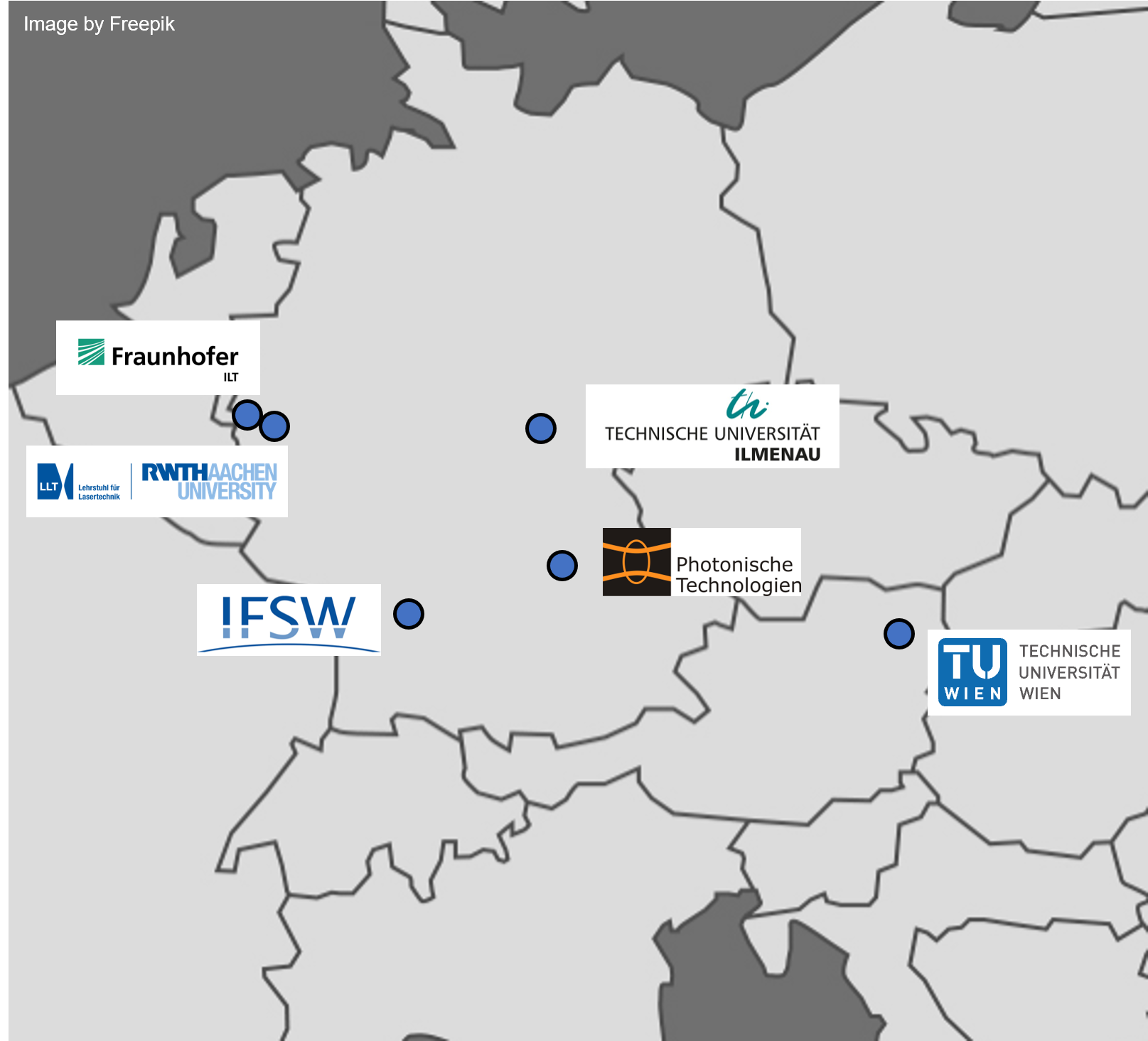
Six research institutes from Germany and Austria are represented in the network, pooling their expertise in laser material processing and process analysis to make the “invisible visible”.
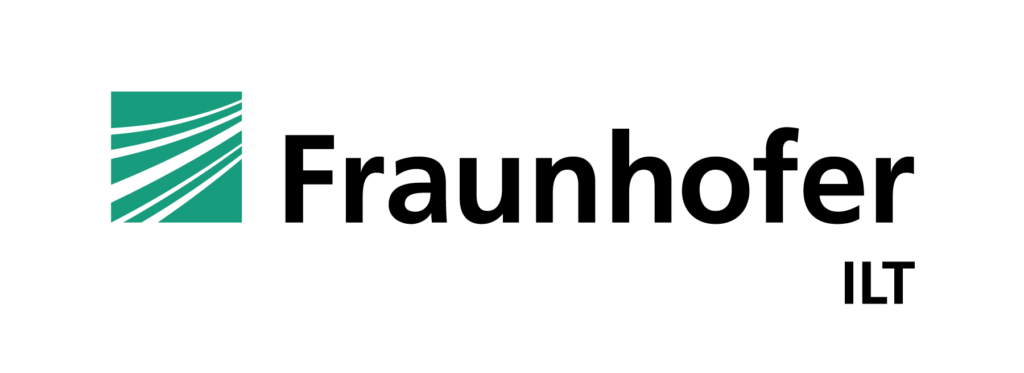
With over 480 employees, more than 19,500 m² net floor space and more than 40 spin-offs, the Fraunhofer Institute for Laser Technology ILT is one of the world’s most important contract research and development institutes in the fields of laser development and laser applications. Our core competencies include the development of new laser beam sources and components, laser measurement and testing technology, and laser manufacturing technology. This includes cutting, ablation, drilling, welding and soldering as well as surface finishing, micro manufacturing and additive manufacturing, among others. The areas of application for laser beam sources and processes include production and metrology, energy and mobility, medical and environmental technology, and quantum technology. Together with excellent partners from German and international research and industry, we develop, for example, satellite-based measurement systems for climate research or frequency converters for a fiber-based quantum internet. Cross-sectionally, Fraunhofer ILT addresses issues of digitalization in photonics and production technology, process monitoring and control, simulation and modeling, AI in laser technology, and the entire field of system technology.

The Chair for Laser Technology LLT carries out research and teaching in the field of the generation and application of radiation from the infrared to the X-ray wavelength range. The framework is constituted by European or publicly funded projects and industrial research and development projects. Close cooperation exist in the region of Aachen with institutes from the RWTH Aachen University, local research institutes and companies, the Industrie- und Handelskammer, the Chamber of Commerce and Networks. The Chair for Laser Technology possesses a solid expertise and broad equipment to meet the high requirements of modern research and development. The research areas include quantum photonics, digital photonic production, laser measurement technology, beam source development, micro- and nanostructuring and fundamentals of melt-based processes. The joint research activities with synchrotron radiation emerged from the Collaborative Research Center SFB1120 “Precision Melt Engineering”.

The Institut für Strahlwerkzeuge (IFSW) of the University of Stuttgart, founded in 1986, pursues the goal of contributing to the progress in laser technology by means of research and development work as well as teaching. Taking a holistic approach, the tasks range from fundamental investigations and developments to demonstration projects for successful industrial application. IFSW deals with selected topics from the fields of beam sources, optical elements and components for beam guidance and shaping, with system technology for laser-based production as well as the interaction between laser beam and workpiece and process development itself.
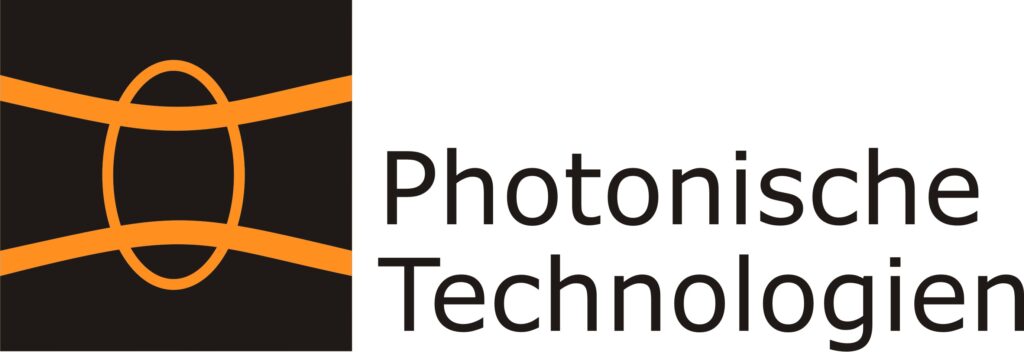
The Institute of Photonic Technologies (LPT) at Friedrich-Alexander-Universität Erlangen-Nürnberg (FAU) researches and develops innovative applications of light and lasers in various fields. Research focuses on laser-based manufacturing processes such as welding and additive manufacturing, the use of ultrashort pulse lasers for micro- and nanomaterial processing, optical sensor technology for non-destructive testing of components and control of processes, and the use of light in medical diagnostics and therapy. Located at the interface between basic research and application, the LPT promotes the transfer of scientific findings into application-orientated technologies. The aim is to promote innovations in industry and medicine and thus pave the way for the future-oriented use of photonics.
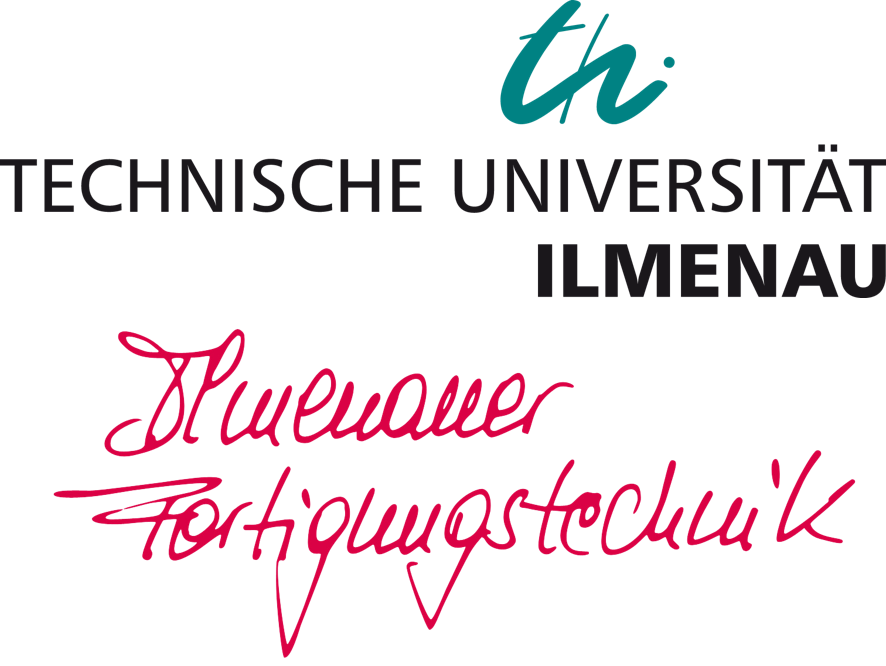
The Production Technology Group “Ilmenauer Fertigungstechnik” is located within the Department of Mechanical Engineering at Technische Universität Ilmenau. The research focus is on material and process engineering investigations of metals, metallic composites and hybrid polymer-metal composites utilizing laser material processing, solid state welding processes and arc technology. Based on many years of experience and an excellent network with research institutions and industrial partners, the Production Technology Group uses modern experimental and analytical equipment to work on innovative topics and develop new production processes in the field of fundamental and applied research. In the field of laser material processing, the focus is on characterizing and continuously expanding the understanding of the interaction between the laser beam and the resulting material properties, for example through the use of adapted intensity distributions, the influence of shielding gases or the variation of ambient conditions.
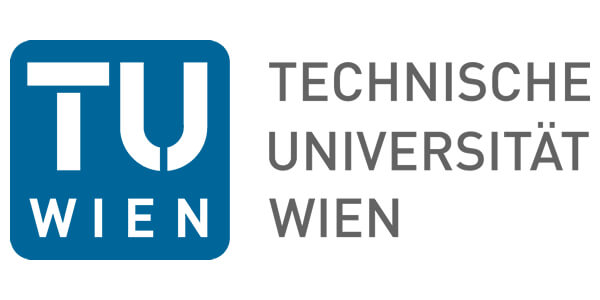
TU Wien is Austria’s largest research and educational institution in the fields of technology and natural sciences. More than 4,000 scientists are engaged in research under the theme “technology for people” and educate more than 26,000 students. Embedded within the faculty of Mechanical and Industrial Engineering, the Institute of Production Engineering and Photonic Technologies comprises more than 110 employees and spans a total area of more than 6,100 m². TU Wien contributes through the Research Group for Process Simulation, which is part of the Research Unit of Photonic Technologies, headed by Prof. Andreas Otto. The group is dedicated to physics-based modeling and simulation of laser-based processes, covering a broad spectrum, from short and ultrashort pulsed lasers to continous wave lasers, and various metallic and non-metallic materials, both from a fundamental research perspective and application-driven applied research.
